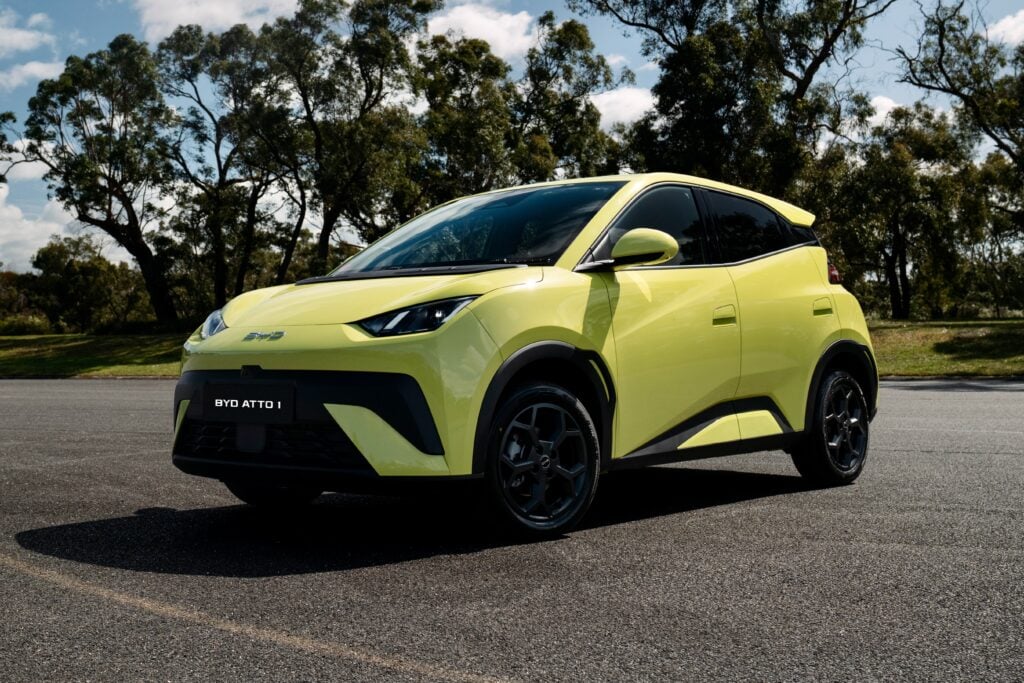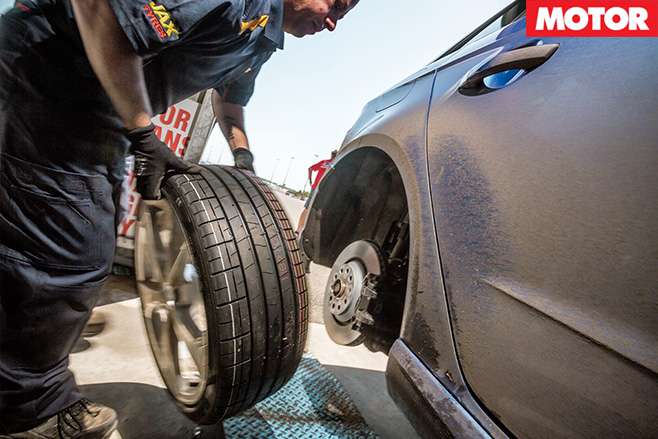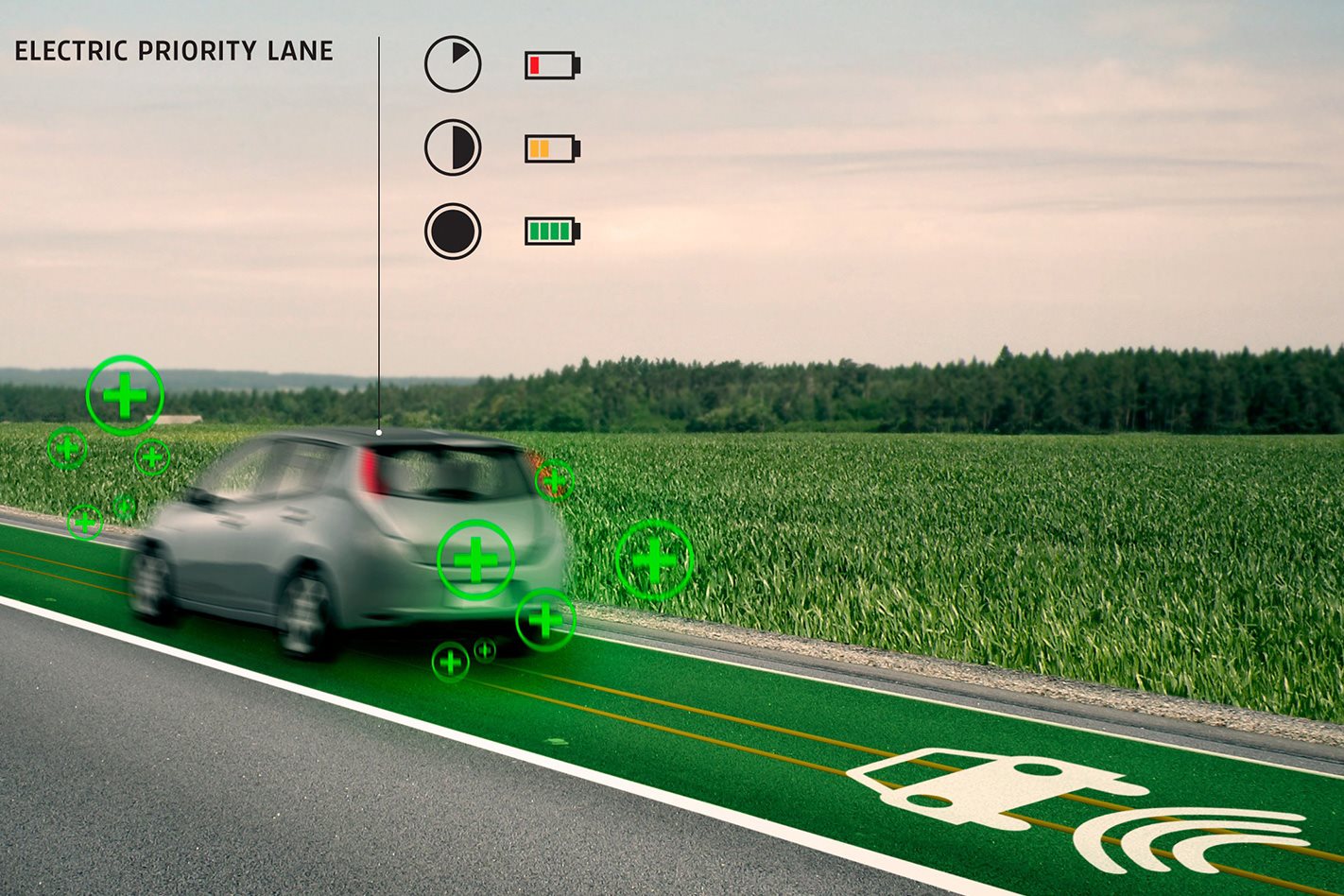
Electric vehicles are wonderful in theory, and can even be excellent in practice in the case of Tesla’s brilliant Model S, but at this stage of the technology’s development, it would take large reserves of patience and determination to own one.
The two biggest problems, of course, are recharging and recharging. Firstly, how long it takes.
Tesla claims its Supercharger can give you a full reload in an hour, but frankly that’s still too long. Compared to the convenience of three minutes fuelling up an internal-combustion car it’s just unacceptable.
And then there’s the ease of finding somewhere to charge it, other than your own house, which remains a huge challenge and will do for some time, because building the kind of infrastructure you need to make EVs widely workable, in a country the size of Australia, would take a huge investment. Which would only make sense if there were a large number of EVs being bought. But no one wants to buy one until the charging network is all set up. And so the Catch 22 goes on.
One brilliant new idea that’s being put to the test in the UK could change everything, however. It’s called, not very imaginatively, the Electric Highway and it works by charging your electric vehicle, via wireless technology, as you drive.
It sounds a bit like a Scalextric track, but in this case you don’t have to drag two bits of steel wool under your car.
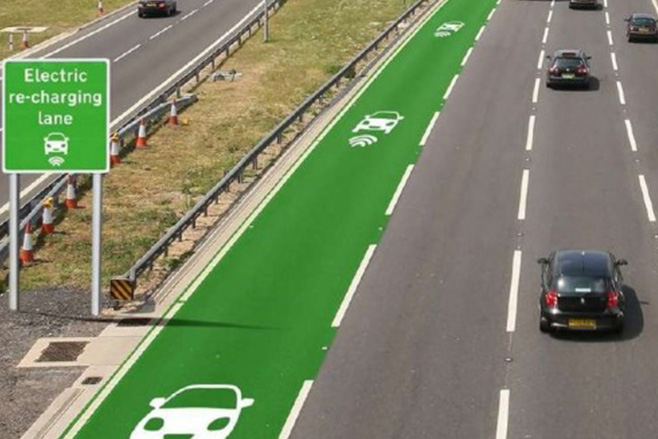
Built alongside the Electric Highway will be a series of power poles, stations and converters, which will connect to “power transfer loops” built into the left lane of the road. These loops create electromagnetic fields, which can be soaked up as you drive over them.
If the prototype testing works, and no one gets accidentally electrocuted when it rains, cars fitted with wireless charging tech would be able to power up on the go.
Duck into town and you’ve got enough battery power to get you around for the day, before charging up again on the freeway home.
Genius, and better yet, it would force people to stay in the left lane for longer.
A feasibility study in the UK found people would be more willing to buy an EV if the wired-road network existed. Which is hardly a shock.
The money for this project is being provided by Highways England, a government body, which has predicted that by 2050, nearly every single vehicle bought in the UK will be an EV or other ultra-low-emissions vehicle.
Already, this year, a new EV is being registered in the UK every 13 minutes.
A government, actually investing in the technology we need for the future? Incredible. I bet they even have good broadband.
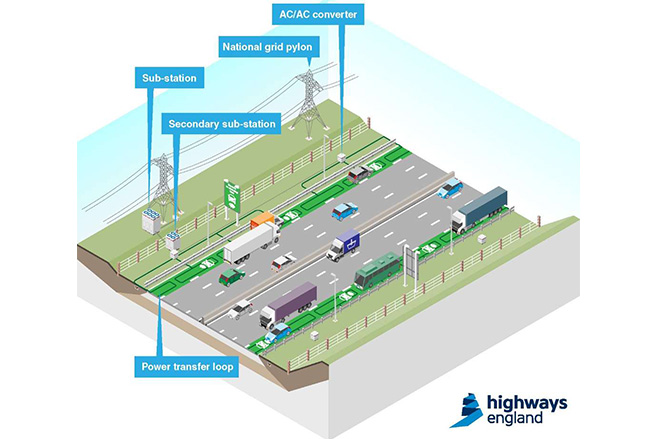
The UK Government also plans to build EV-charging stations every 20 miles along motorways (presumably because they’ll be up and running well and truly before the Electric Highway technology gets off the ground).
“The combination of both types of charging technologies could help to create a comprehensive ecosystem for electric vehicles.” says Nic Brunetti, a spokesman for Highways England.
“An important part of managing the road network over the next 30 years will be preparing the infrastructure for a shift to new types of vehicles and technology. We need to plan intelligently for the future.”
The big problem for this exciting innovation is, aside from the inherent complexity of the technology, the expense. Digging up thousands of miles of road, or building all-new ones, to host the tech, would cost Donald Trump-sized amounts of money, not to mention the cost of the power converters along the sides.
Getting governments anywhere, well anywhere outside of China, to fund big new roads projects seems exceedingly difficult. These kind of epoch-changing shifts in technology work on a different scale – taking smart phones into our lives for example – but on a scale this big it’s hard to imagine the physical world being so totally redefined and redesigned.
The UK, which is only about the size of our Great Barrier Reef, might be able to make it work, in a few decades time, but Australian motorists probably shouldn’t be revving up to head out on the whisper-quiet Electric Highway of the Future just yet.

